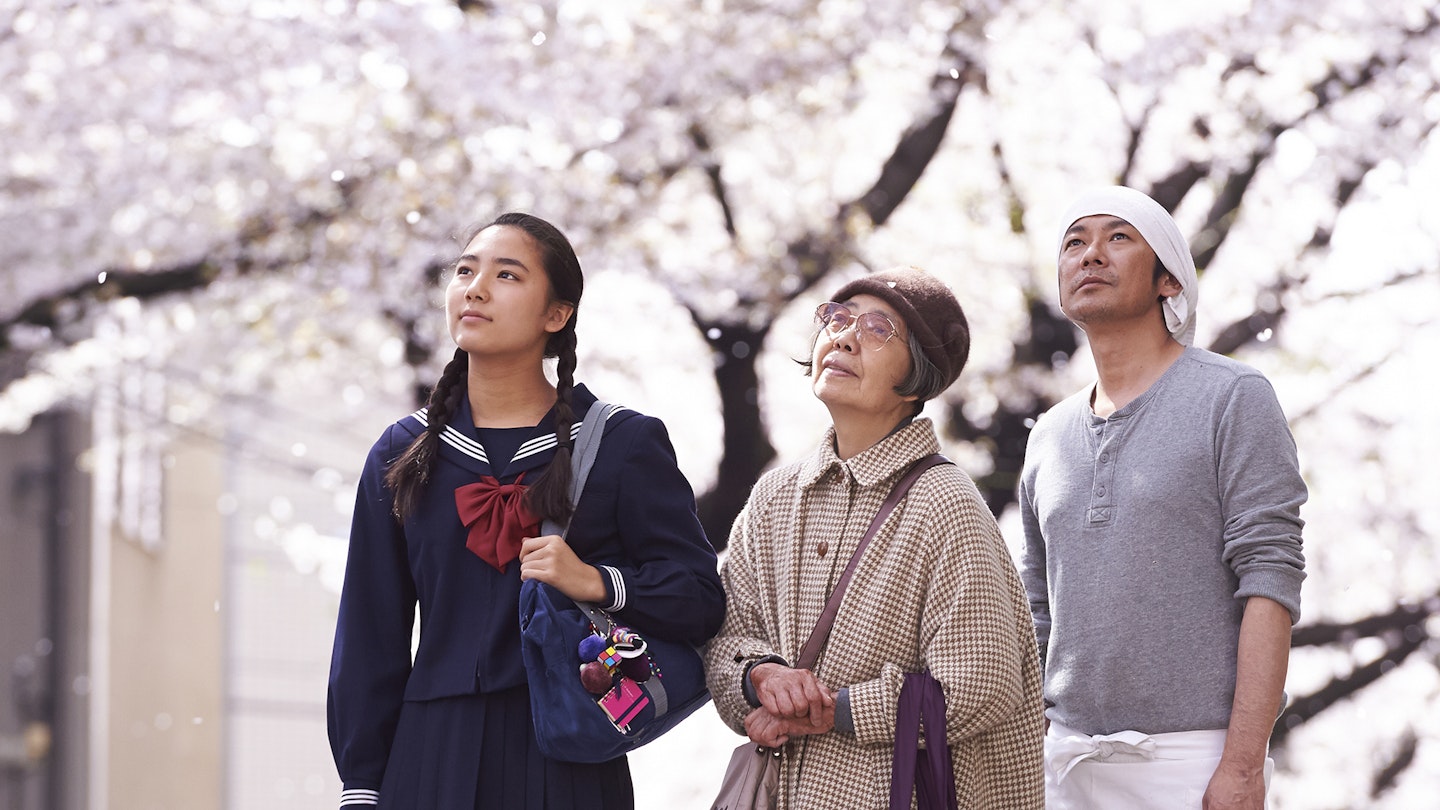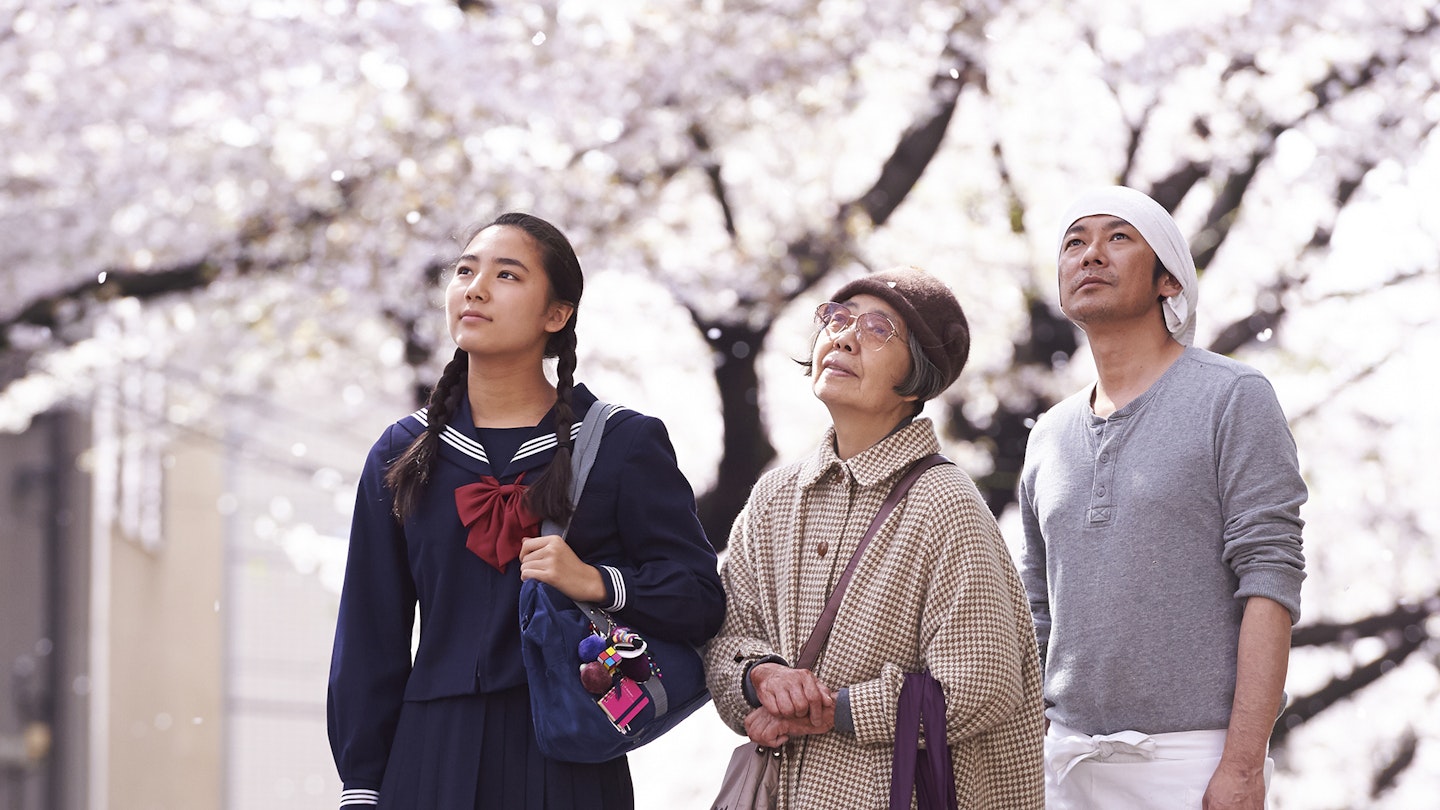Since becoming the youngest winner of the Camera d'or at Cannes for her feature debut, Suzaku, Naomi Kawase has frustrated critics with her patented blend of mystical lyricism and mannered self-indulgence. However, she keeps things simple in this touching, meditative adaptation of a Durian Sukegawa novel, which contains echoes of both The Mourning Forest in which a nurse grieving for a lost child befriends an old man suffering from dementia, and Still The Water, which sees two teenagers forge a tentative bond while experiencing family crises.

The notion that the old ways are always best is challenged.
Fleetingly reflecting upon the impact of the recession on Masatoshi Nagase's dorayaki snack bar, Kawase puts his dwindling fortunes down to the fact that he uses factory fillings. This allows her to dwell on her pet theme of the connection between humanity and the natural world by having septuagenarian Kirin Kiki appear through the cherry blossom to show Nagase how to prepare a homemade sweet azuki bean paste that quickly enchants such regular customers as schoolgirl Kyara Uchida (who is Kiki's off-screen granddaughter), whose shyness has been exacerbated by maternal neglect.
Yet, while Kawase and cinematographer Shigeki Akiyama linger over the cooking rituals, the notion that the old ways are always best is challenged as the narrative focus shifts on to Kiki's sudden disappearance after Uchida discovers that she has been treated for leprosy. The fact that Nagase also has something to hide (after falling into debt after a bar brawl) gives Kiki's ostracisation a chauvinist/ageist slant that Kawase puts down to the encumbering conservatism of Japanese society. But her message is essentially positive, as she urges viewers to rejoice in their existence and savour the sensory experiences that a wonderful world has to offer.
